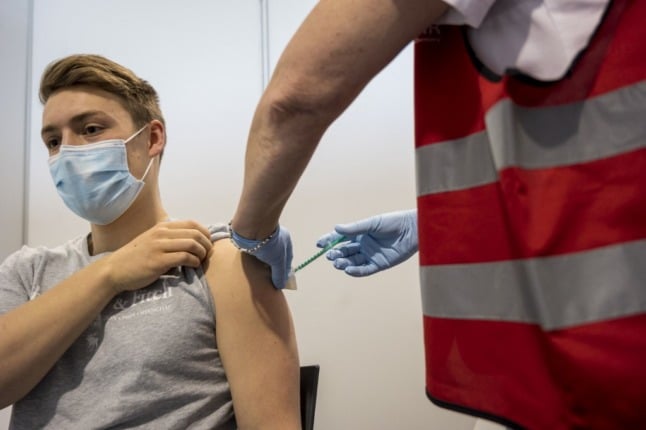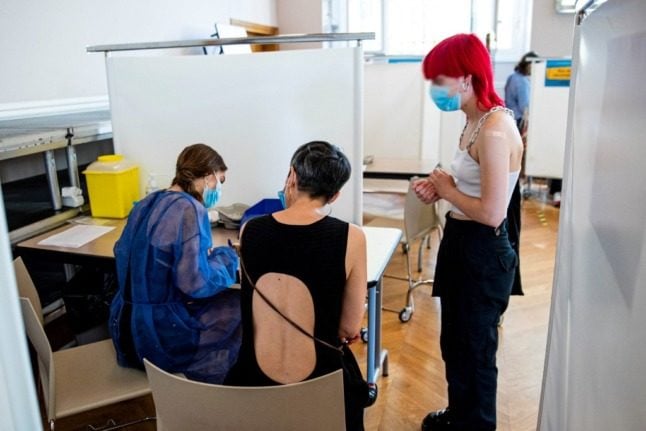On June 15th, Spain’s national and regional health authorities approved the inclusion of three more age groups under 40 years in the country’s vaccine strategy, among them 20 to 29 year olds.
This is a milestone for Spain’s vaccination rollout as it means younger adults now have their Covid-19 jab in sight after six months of inoculations understandably focused on immunising the country’s oldest and those with pre-existing health conditions, as they are the most likely to fall seriously ill with Covid-19.
The news also comes at a time when Spanish authorities are warning young people to take extra precautions as the appearance of the Delta strain which originated in India and which is expanding in Spain is expected to affect those who haven’t received a single dose yet.
According to Spain’s National Statistics Institute, there are approximately 4.9 million people in Spain between the ages of 20 and 29.
When will people in their twenties get vaccinated in Spain?
At the current rate, late July or August is the most likely start date for vaccinations for twenty-somethings across Spain’s 17 regions.
In theory, the regions will start vaccinating 39 to 30 year olds first, then move onto 29 to 20 year olds and finally 19 to 12 year olds, working from oldest to youngest year by year.
However, Galicia has announced it will open up vaccine appointments for all ages from July 1st, which would therefore mean those aged 20 to 29 can be immunised sooner in the northwestern region.
Health authorities in Catalonia also announced that they plan to vaccinate their population between the ages of 16 and 39 in July, which would mean that twenty-somethings in Barcelona and the Catalan region could get vaccinated soon.
As a recent report in Spanish medical publication Redacción Médica suggests, the national vaccination plan is now being somewhat overlooked by regional authorities that have already started vaccinating people in their thirties before the official announcement by the national health ministry.
This could mean that in places such as the Canary Islands where people in their thirties are already being vaccinated or will be during late June, people in their late twenties may get their vaccine in mid-July.
READ ALSO:
- Spain’s Covid vaccine calendar: When will I get the jab?
- Covid-19 vaccine for people in their 30s in Spain: What you need to know
 Photo: THOMAS LOHNES / AFP
Photo: THOMAS LOHNES / AFP
Which vaccines will twenty-somethings receive in Spain?
Spain’s Public Health Commission is yet to announce which vaccines will be approved for use in the under 40 age groups.
The most likely choices will be the Messenger ARN two-dose Pfizer and Moderna inoculations, the vaccines some regions have begun vaccinating thirty-somethings with as well.
Many people in their thirties and twenties may be currently hoping that Spanish health authorities approve the use of the single-dose Johnson & Johnson inoculation for their age group, just as Spain’s Health Ministry did for 40 to 49-year olds on June 1st.
Unfortunately, the latest reports point to the fact that Spain is receiving far fewer J&J vaccines than anticipated due to serious delivery delays (5.5 million doses expected this quarter, 1.2 million received so far).
As a result of these hold-ups, health workers have decided to give the first dose of Moderna and Pfizer vaccines to people in their 40s and 50s in order to not keep them waiting, meaning that only 700,000 J&J of the 1.2 million available have been used.
We will keep you updated on further vaccine developments relating to people in their twenties in Spain, as well as other age groups, so stay tuned.
If you want to find out more about Spain’s Covid-19 vaccination campaign, vaccination certificates, getting an appointment and more, check our The Local Spain’s Covid-19 vaccine section here.



 Please whitelist us to continue reading.
Please whitelist us to continue reading.
Member comments